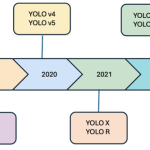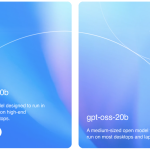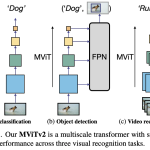Discover how to overcome the limiting belief that you can’t learn new skills. This post explores neuroplasticity, shares inspiring stories of adults learning coding & Mandarin, and offers actionable steps to unlock your brain’s boundless learning potential at any age.
Have you ever caught yourself saying, “I’m just not a ‘math person’,” or “I could never learn to code,” or “I’m too old to pick up a new language”? This seemingly harmless self-talk is often a manifestation of a powerful, yet invisible, limiting belief: the idea that our capacity to learn is fixed, predetermined, or diminishes drastically with age.
But what if that wasn’t true? What if the real barrier wasn’t your inherent ability, but rather the story you’ve been telling yourself about it?
Shattering the Myth of Fixed Abilities
For too long, society has subtly ingrained the notion that intelligence is a finite resource, something you either have or you don’t. We categorize ourselves – “creative types,” “logical thinkers,” “people persons” – and inadvertently box ourselves into these labels. But modern neuroscience, particularly the research on neuroplasticity, tells a different story. Your brain is not a static entity; it’s a dynamic, ever-changing organ capable of forming new connections and learning at any age.
“The only thing that stands between a man and what he wants from life is often merely the will to try it and the faith to believe that it is possible.” – Richard DeVos
Stories of Unlocked Potential: It’s Never Too Late to Learn
The best way to challenge a deeply held belief is often through real-world examples. People just like you have defied these perceived limitations and embarked on incredible learning journeys.
Sarah’s Unexpected Dive into Coding
Take **Sarah**, for instance. In her late 30s, she firmly believed she was “terrible at anything technical.” Her school experiences with math had left her convinced she lacked the ‘logic’ gene. Yet, a casual conversation sparked an interest in web design, and a friend suggested trying a basic coding tutorial. Sarah felt the familiar pang of inadequacy initially. But instead of giving up, she committed to just **15 minutes of coding practice every single day.** Some days, it felt like she was banging her head against a wall. Other days, a tiny concept would click, bringing a rush of exhilaration. Within a year, Sarah, the self-proclaimed “non-tech person,” was confidently building small, functional websites. Her journey wasn’t about sudden genius; it was about consistent effort chipping away at a limiting belief.
Michael’s Marathon in Mandarin
Or consider **Michael**, a retired executive who, at 62, decided he wanted to learn Mandarin. Friends and family raised eyebrows, citing the language’s notorious difficulty and the common belief that language learning becomes exponentially harder with age. Michael faced immense frustration with the tones and complex characters. There were moments he wanted to quit. But he embraced a “beginner’s mind,” found a dedicated tutor, and treated every mistake as a crucial part of the learning process. He immersed himself, practiced daily, and slowly, painstakingly, made progress. Five years later, Michael converses fluently with native speakers, proving that the brain’s capacity for learning, even complex new languages, endures and thrives with dedication, regardless of age.
Your Brain is Designed to Learn: How to Tap Into Its Power
These stories aren’t exceptions; they are examples of what’s possible when you dismantle the mental barriers and engage with your innate capacity for growth. Here’s how you can start your own journey of limitless learning:
1. Embrace a Growth Mindset
Understand that your intelligence and abilities are not fixed traits but rather qualities that can be developed through dedication and hard work. Carol Dweck’s research on the growth mindset is foundational here. Instead of saying, “I can’t do this,” try, “I can’t do this yet.”
2. Start Small, Stay Consistent
Big goals can be overwhelming. Break down what you want to learn into tiny, manageable steps. Just like Sarah’s 15 minutes of coding, consistency trumps intensity. Regular, short bursts of practice are more effective than sporadic, long sessions.
3. Focus on the Process, Not Just the Outcome
Learning is a journey, not a destination. Celebrate the small victories – understanding a new concept, overcoming a tricky problem, or simply showing up when you didn’t feel like it. The process itself builds resilience and capability.
4. Embrace Mistakes as Learning Opportunities
Mistakes are not failures; they are data points. They show you where you need to adjust, where your understanding is weak. Michael’s willingness to make mistakes was crucial to his language learning success. View them as feedback for improvement.
5. Seek Support and Community
Learning doesn’t have to be a solitary endeavor. Find mentors, join online forums, or connect with others who are on a similar learning path. Shared challenges and successes can be incredibly motivating.
Ready to Unleash Your Learning Potential?
The biggest obstacle to learning something new is often the belief that you can’t. By understanding the incredible adaptability of your brain and adopting a growth-oriented approach, you can shatter these self-imposed limits and unlock capabilities you never knew you had.
What’s one skill you’ve always wanted to learn but felt you couldn’t? Share your thoughts and experiences in the comments below! Let’s inspire each other to embrace a lifetime of boundless learning.







Leave a Reply